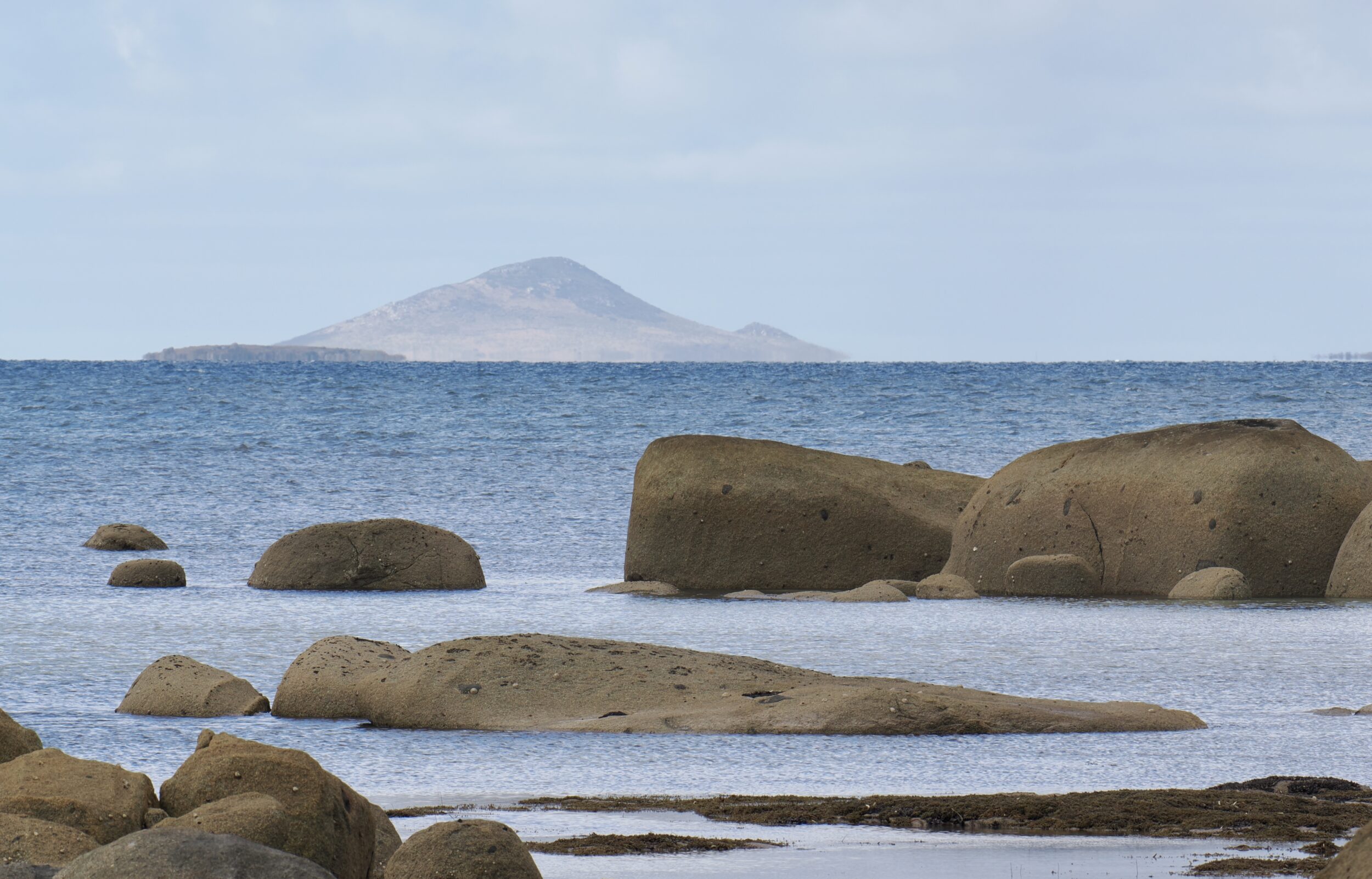This post’s photo was taken just a few minutes further into our morning walk on 18 March 2025.
When clouds move along in a dappled sky, they can swiftly and dramatically change a landscape’s/seascape’s appearance.
A few minutes earlier – as pictured in this series’ preceding chapter – the “darkly forbidding”, low-lying island in front of Hummocky/Mt Chappell Island was an “inviting” isle, bathed in golden light.
Matthew Flinders named Mount Chappell in 1798, after the maiden name of the woman he would marry in 1801.
Flinders Island, is named after him, as are more than 100 other Australian places; Flinders was the first person to map the entire Australian continent’s shoreline – mostly, with astonishing precision.
Flinders completed his “big map” of Australia in 1804.
In 1798 he and George Bass were almost certainly the first humans ever to circumnavigate Tasmania; they proved that it was not part of the Australian mainland.
In 1802-1803 Flinders led the first circumnavigation of continental Australia.
Contrary to popular belief, Flinders was not the first mapmaker to use the word “Australia”; he was, however, the name’s most effective champion.
Discover more here.
—
Musical bonus:
Rugadh Mi ‘Teis Meadhan Na Mara (I was born in the midst of the sea)
This song/poem describes very hard lives, on an island just off the coast of Brittany.
Its Breton name – Enez Groe – mean’s “witches’ island”.
For centuries its male inhabitants worked the sea, whilst the women worked the land.
The lyric’s author was raised there.
Yann-Ber Kalloc’h (1888-1917) was 14 years old when his fisherman father died, “lost at sea”.
Today, the island is a popular tourist destination, known to French-speakers – and to most international tourists – as Groix.
Yann-Ber Kallocʼh was a Breton war poet who wrote in both Breton and French. Similarly to the English poet Wilfred Owen and the Welsh poet Hedd Wyn, Kallocʼh was killed in action during trench warfare while serving as a Poilu during World War I. Kallocʼh’s death was an equally catastrophic loss to Breton literature.
The italicised paragraph is from his Wikipedia entry.
Julie Fowlis delivered this uncanny “live” performance in 2015:
Full lyric, in English translation:
I was born in the midst of the sea,
Three leagues off the shore;
A small white cottage, have I there.
Broom grows by its door,
And the moor spreads all around.
I was born in the midst of the sea,
In the land of the sea.
My father was, like his forefathers,
A seaman.
He lived obscure, without glory,
Poor soul, no one praises his memory.
By day, by night on the rolling sea,
My father was, like his forefathers,
Trawling his nets.
Mother as well, she works,
Despite her white hair;
With her, sweat over the forefront,
I learned, as an infant,
To grow and harvest potatoes.
Mother as well, she works, to earn bread.

Comments